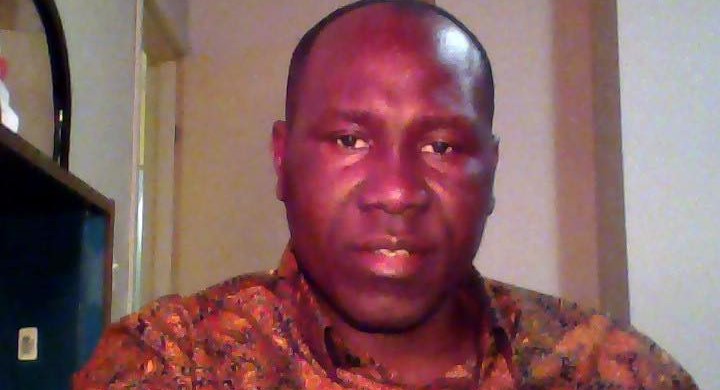The treason charges against First Vice-President Dr. Riek Machar are bound to fundamentally change South Sudan’s political landscape and social cohesion.
Dr. Machar has long been at the center of controversial legal, political, and ethnically-motivated proceedings. The current charges against him include violating legal norms, international standards, and human rights principles. It is essential to examine these concerns comprehensively, considering their historical context and broader implications for justice and governance in South Sudan.
This case serves as a stark reminder of the challenges facing South Sudan’s legal and political systems. Allegations of an unlawful trial highlight the urgent need for judicial reform, respect for human rights, and the establishment of fair and independent courts. Ensuring justice for all citizens, regardless of political affiliation, is fundamental to peace and stability in the region.
Considered by many to be a Father of the Nation, Dr. Machar played a vital role in South Sudan’s struggle for independence. He contributed significantly to the country’s founding and development. Throughout decades of conflict and negotiations, his leadership was instrumental in the pursuit of self-determination and in shaping the nation’s political landscape. Many South Sudanese view his legacy as a testament to his enduring commitment to national unity, reconciliation, and the aspiration for a peaceful, independent nation.
The charges against Dr. Machar have been widely criticized as lacking legal merit and stemming from political and ethnic animosities rather than an impartial judicial review. Legal analysts and international observers have pointed out procedural irregularities, including the absence of due process, limited access to legal representation, and a disregard for basic human rights protections. These issues raise serious questions about the independence of South Sudan’s judiciary and the impact of politically motivated prosecutions on the nation’s fragile peace process.
Moreover, the context of these charges reflects a history of unresolved ethnic grievances and cycles of revenge, further complicating the pursuit of genuine justice. The international community has consistently called for transparent and fair legal proceedings, emphasizing the importance of safeguarding individual rights and restoring public trust in judicial institutions.
The trial of Dr. Machar is widely perceived as a manifestation of ongoing ethnic revenge rather than a legitimate pursuit of justice. The charges and judicial actions appear deeply entangled with longstanding ethnic tensions and patterns of retaliation that have fueled conflict in the country. These underlying issues weaken the proceedings’ legitimacy and underscore the need for an impartial judiciary to support true reconciliation and healing.
Ethnic revenge has played a significant role in the targeting of Dr. Machar. Many see the actions against him as stemming from deep-seated tensions between communities. The pursuit of justice in his case is complicated by these tribal dynamics, where cycles of retaliation have often overshadowed the rule of law. This not only undermines the credibility of the proceedings but also threatens efforts toward national unity and lasting peace.
The indictment of Dr. Machar has far-reaching consequences for South Sudan’s political stability, social cohesion, and prospects for peace.
First, the perception that the charges are politically and ethnically motivated undermines public confidence in the country’s judiciary and exacerbates mistrust among different ethnic groups. This erosion of trust makes it more difficult to resolve disputes through lawful and peaceful means, increasing the risk of renewed conflict and retaliatory violence.
Second, targeting such a prominent figure threatens to derail ongoing reconciliation and peace-building efforts. Dr. Machar’s indictment is seen by many as deepening divisions, potentially alienating his supporters and fueling grievances that could destabilize the fragile coalition government. The resulting uncertainty can hinder progress toward national unity, delay critical reforms, and discourage the international support and investment essential for South Sudan’s development. Ultimately, unless addressed through transparent and fair legal processes, the indictment may perpetuate animosity and impede the country’s path to lasting peace and stability.
The politicization of the judiciary is evident in the case against Dr. Machar, where the proceedings appear designed to suppress political dissent and marginalize opposition figures. By pursuing charges widely perceived as baseless or motivated by ethnic and political animosity, authorities are effectively weaponizing the judicial system to advance partisan interests. This undermines both the legitimacy of the courts and the prospects for impartial justice, further entrenching divisions and eroding public trust in governance.
Such actions set a dangerous precedent, transforming the judiciary into an instrument for settling political scores rather than upholding the rule of law. The targeting of Dr. Machar not only reflects broader issues of judicial independence but also highlights the risks of using legal processes to silence influential leaders. These dynamics threaten to destabilize the delicate balance of power in South Sudan and reinforce the urgent need for reforms that safeguard judicial integrity.
It is imperative that the South Sudanese judiciary take decisive action by dropping the case. Such a move would signal a genuine commitment to impartial justice, reinforce the rule of law, and help break the destructive cycle of politically and ethnically motivated prosecutions. By ending these proceedings, the judiciary can begin to restore public confidence, promote national reconciliation, and lay a stronger foundation for lasting peace and stability in South Sudan. Ultimately, prioritizing justice over retribution will better serve the interests of all citizens and foster an environment where dialogue and unity can flourish.
The writer, Philemon Daud Tom, is the SPLM-IO Provincial Coordinator of Ontario, Canada (philemondaud84@gmail.com)
The views expressed in ‘opinion’ articles published by Radio Tamazuj are solely those of the writer. The veracity of any claims made is the responsibility of the author, not Radio Tamazuj.




